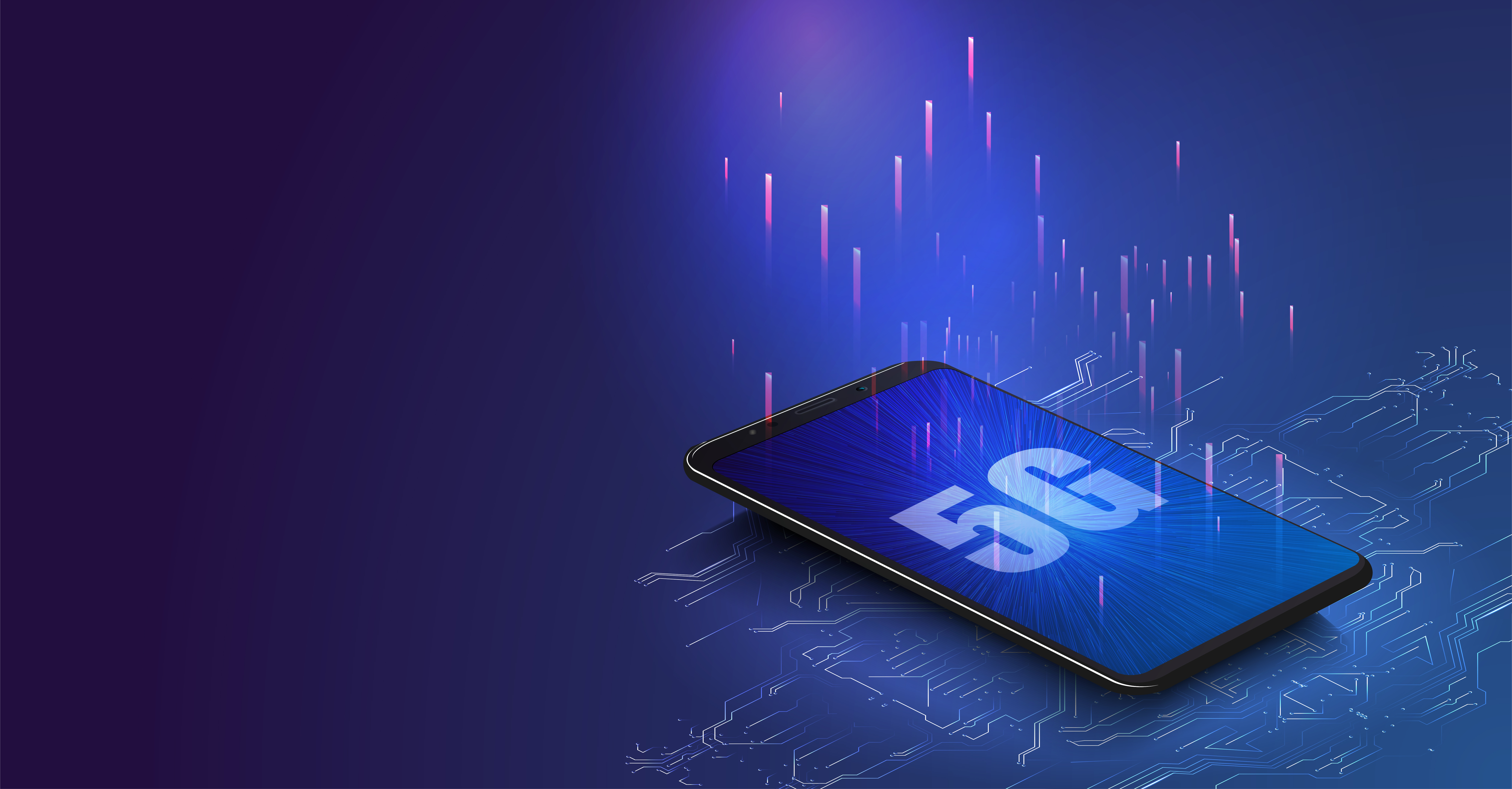Bridging the Past, Present, and Future of Tech
How AI and Wearable Devices Are Transforming Healthcare

Artificial intelligence and wearable technology for healthcare are revolutionizing the medical field, shifting it from reactive to proactive, personalized care. These innovative technologies enhance how we track health, prevent illness, and treat patients, marking a significant evolution in wearable healthcare technology. By combining AI’s analytical capabilities with wearable devices’ real-time data tracking, we’re seeing the beginning of a healthcare evolution that supports healthier, and more connected lives.
- The Impact of AI and Wearable Technology on Modern Healthcare

- Types of Data Collected by Wearable Devices and AI’s Role in Analyzing It

- The Influence of AI and Wearables on the Doctor-Patient Relationship

- Challenges in Integrating AI and Wearable Technology into Healthcare

- TDK’s Contribution to the Development of AI and Wearable Health Technology

- Conclusion

The Impact of AI and Wearable Technology on Modern Healthcare
The integration of AI and wearable tech into healthcare is redefining how we approach patient care. Traditional healthcare largely responds to issues as they arise, but wearables and AI algorithms allow for continuous monitoring, enabling preventive care, personalized treatment, and early intervention. As highlighted in The Emergence of AI-Based Wearable Sensors for Digital Health, these technologies effectively track health metrics such as heart rate, blood pressure, and activity levels. By leveraging advanced machine learning, AI analyzes this data and provides actionable insights that help healthcare providers and patients make better-informed decisions.
Key Transformative Benefits:
● Preventive Care: AI-powered insights help individuals maintain wellness by alerting them to changes in key health metrics.
● Patient Monitoring: Wearables monitor chronic conditions 24/7, allowing clinicians to spot any deviation that may require intervention.
● Personalized Medicine: AI customizes treatment plans based on each patient’s unique data, improving outcomes and patient satisfaction.
Through real-time data and continuous monitoring, the future of wearable technology in healthcare promises a proactive approach, where doctors and patients can make quicker, more precise health decisions, further supported by the advanced capabilities of AI.
Types of Data Collected by Wearable Devices and AI’s Role in Analyzing It
Modern wearable technologies in healthcare track various essential health metrics, such as:
● Respiration Rate: Monitors breathing patterns, which can indicate issues related to respiratory health or stress levels.
● Electrocardiogram (ECG) Readings: Detects irregular heart rhythms, offering early signs of arrhythmias, which may reduce the risk of serious cardiac events.
● Skin Temperature: Fluctuations in temperature can signal inflammation, illness, or hormonal changes, giving early insight into health shifts.
● Blood Glucose Levels: Emerging wearable devices can now monitor glucose levels, crucial for managing diabetes and optimizing daily health routines.
In addition to these metrics, wearable devices like fitness trackers and smart rings also monitor general activity, including step counts, sleep quality, and movement patterns. Other emerging wearables, such as posture correctors and smart canes, are enhancing accessibility and independence for users with specific needs, broadening the scope of wearable healthcare technology.
How is AI technology used in healthcare? Advanced AI algorithms make sense of this continuous stream of data. Through machine learning, AI can analyze patterns, detect anomalies, and even predict health risks before symptoms arise. By examining long-term trends, AI can help tailor personalized health advice, from activity adjustments to dietary recommendations, directly through a wearable device or to a clinician’s dashboard.
With wearables and AI in healthcare, users receive real-time feedback, promoting a proactive approach to health. This integration of AI not only supports immediate alerts for urgent issues but also builds a comprehensive health profile over time, aiding doctors in making precise, data-backed decisions. In sum, these tools enhance early intervention, promote healthier lifestyles, and lead to improved long-term outcomes.

The Influence of AI and Wearables on the Doctor-Patient Relationship
The integration of AI and wearable technology in healthcare has redefined how doctors and patients interact, shifting from occasional visits to continuous engagement. This technology supports a more connected approach, where patients play an active role in managing their health, and doctors gain real-time insights that improve decision-making and personalization in care.
Notable Shifts in Doctor-Patient Dynamics:
● Enhanced Communication: With wearable technology medical devices continuously collecting data, patients and doctors can address health concerns based on real-time information. This shared access allows doctors to offer more context-specific advice, while patients gain greater clarity and confidence in their treatment plans.
● Remote Monitoring: For patients managing chronic conditions, remote monitoring is a game-changer. Doctors can track health metrics outside the clinic, reducing the need for frequent visits and enabling interventions when necessary. Remote monitoring can detect early signs of complications, improving patient outcomes and peace of mind. An example of this is the WeWalk Smart Cane, which features TDK’s advanced sensor technology, enhancing mobility and safety for visually impaired users. This integration demonstrates how wearable devices can expand accessibility while supporting patient independence.
● Proactive Health Management: Artificial intelligence wearables bring a proactive element to healthcare by identifying trends and potential issues before symptoms become severe. For instance, wearables can detect irregular heart rhythms or changes in sleep patterns, alerting patients and doctors before these factors lead to larger health problems.
● Collaborative Care: AI and wearables empower patients to engage actively in their health journeys. With access to their data and AI-driven insights, patients can make informed lifestyle adjustments, enhancing compliance and commitment to their health goals.
This continuous data-sharing framework fosters stronger relationships and trust. Patients feel supported, knowing their doctor has timely access to their health data, while doctors can offer precise, personalized care, transforming healthcare into a cooperative, data-driven model that truly puts patient health at the forefront.

Challenges in Integrating AI and Wearable Technology into Healthcare
As wearable devices and AI in healthcare advance, several key challenges must be addressed to maximize their benefits while ensuring safety and privacy for patients.
Key Challenges to Address:
● Technical Limitations: Precision in data accuracy is crucial. Wearable sensors must provide reliable information to enable effective patient monitoring. Additionally, enhancing battery life supports uninterrupted tracking, while device compatibility across platforms ensures smooth data integration in healthcare systems.
● Ethical Considerations: Transparency in AI processes allows patients to understand how their data is used to generate health insights. Clear guidelines around data ownership and responsible use of information foster trust in wearable technology for healthcare.
● Privacy and Security: Wearables collect sensitive health information, making strong data protection protocols essential. Adherence to standards like HIPAA (Health Insurance Portability and Accountability Act) helps secure patient information, minimizing risks of unauthorized access and data misuse.
Addressing these challenges will create a secure, efficient healthcare ecosystem, where wearable technology for healthcare supports high-quality care without compromising patient privacy or trust.
TDK’s Contribution to the Development of AI and Wearable Health Technology
In the evolving field of healthcare wearable technology, TDK contributes by developing components designed to support reliable health data collection and analysis. These technologies aim to enhance health management by facilitating real-time monitoring and supporting a proactive approach to preventive care.
TDK’s Notable Contributions:
● MEMS sensors for wearables: TDK’s advanced MEMS motion sensors, including the ICM-20648, ICM-20602, and ICM-20649, are integral to wearable devices designed for activity classification (e.g., walking, running, cycling), step counting, calorie tracking, and sleep quality analysis. These sensors also enable analytics such as tracking walking/running duration, time spent standing or sitting and providing reminders for sedentary lifestyles. These capabilities enhance health monitoring and lifestyle adjustments.
● Magnetic sensors for cardiac activity measurement: In collaboration with Tokyo Medical and Dental University, TDK has achieved a world-first breakthrough in magneto-cardiometry by measuring cardiac activity using a highly sensitive MR sensor array outside of a magnetically shielded room. TDK sensors support the innovative prototype chair, which enables non-contact cardiac measurement, eliminating the need for traditional magnetic shield or superconducting quantum interferometric devices (SQUIDs), making the technology more accessible for medical use.
● Power Supplies for Healthcare Devices: TDK Corporation has expanded its power supplies solutions to improve the performance, accessibility and safety of medical devices, supporting patient care and efficiency in healthcare settings. For example, the TDK Lambda CUS250M series, offers additional voltage options for industrial and medical applications including, home healthcare, dental and test equipment, ensuring reliability in patient connected devices. Another contribution for medical industry is the CUS800M and CUS1000M AC-DC series, which deliver up to 1000W of power and feature variable speed fan, ensuring the products to achieve efficiency up to 95.5% and heat management, making ideal for operations in compact packages across a wide range of medical technology applications.
● ASIC design case studies: ICsense (a TDK group company) offers custom ASICs (Application Specific Integrated Circuit) solutions for advanced healthcare applications. The projects designed by ICsense are used for a variety of medical devices including high-risk implantable devices, ultra-low-power devices, hearing aids and wearables.
One case study is a low-power and low-noise chip designed for ECG (electrocardiogram) systems. The chip integrates multiple bio-potential channels, a bio-impedance measurement channel and the ability to detect pacemaker signals. This ASIC also includes built-in features for configurating digital filtering and processing blocks.
Funded by the European Union’s Seventh Programme for research and development, ICsense designed a lab-on-chip ASIC for rapid and low-cost cancer cell detection. The ASIC measures the electrical impedance of cells at diverse frequencies, converting the information into digital data for analysis.
TDK’s technological advances empower wearable devices to contribute to the healthcare system’s transformation, helping patients and providers engage in more informed, meaningful health management.
Conclusion
AI and wearable devices hold the potential to reshape healthcare practices globally. As technology advances, patients and providers alike stand to benefit from more proactive, personalized, and accessible healthcare solutions. Wearable devices, empowered by AI, offer data that not only informs but also predicts and prevents health issues, making care more targeted and effective.
By improving doctor-patient communication, enabling real-time monitoring, and supporting preventive care, AI and wearables are fostering a healthcare model focused on wellness and early intervention. TDK’s contributions in developing advanced biosensors and IoT solutions help drive this transformation, creating devices that bring healthcare closer to patients and empower individuals to take charge of their well-being.
As we continue to refine and integrate AI and wearable technology into healthcare, the long-term benefits for patients, providers, and health systems are promising, paving the way for a future where healthcare becomes smarter, more efficient, and truly personalized.
TDK is a comprehensive electronic components manufacturer leading the world in magnetic technology






